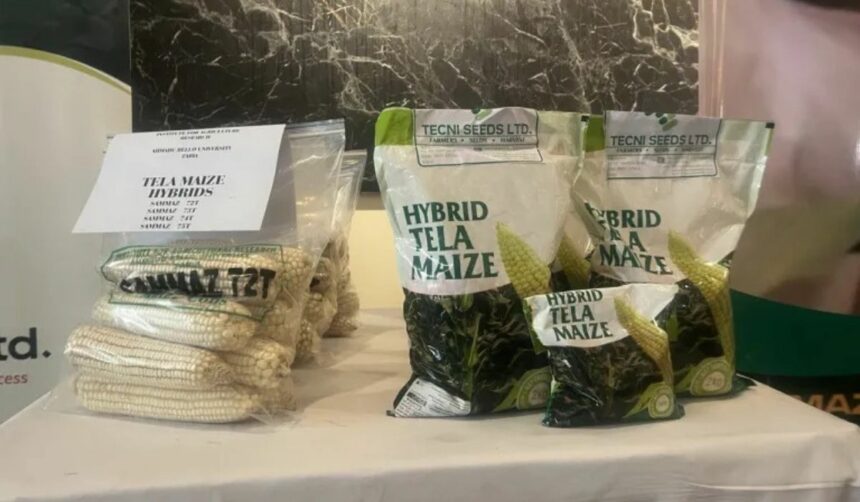Paragraph 1: Introduction to TELA Maize and its Impact on Nigerian Agriculture
Nigeria, a nation grappling with the challenges of food security and sustainable agriculture, has witnessed a promising development in the form of TELA Maize. This genetically modified maize variety has demonstrated remarkable potential to revolutionize farming practices and improve livelihoods for smallholder farmers. A recent on-farm study conducted during the 2024 wet season by the African Agricultural Technology Foundation (AATF) and its partners has confirmed the significant advantages of TELA Maize over conventional maize varieties. The study revealed substantial improvements in yields, profitability, and pest resistance, offering a beacon of hope for increased agricultural productivity and economic empowerment in Nigeria.
Paragraph 2: Enhanced Yield and Profitability of TELA Maize
The on-farm trials provided compelling evidence of the superior performance of TELA Maize. One of the most striking findings was the significant yield advantage observed in the TELA maize hybrid SAMMAZ 75T. This hybrid achieved an average yield of 5.09 tonnes per hectare, a remarkable 54% increase compared to the 3.30 tonnes per hectare recorded for non-TELA maize. This substantial boost in yield translated directly into higher farm income, with TELA Maize generating N3.16 million per hectare, significantly surpassing the N2.05 million earned from conventional maize. This increased profitability is a crucial factor in improving the economic well-being of smallholder farmers and contributing to the overall agricultural economy.
Paragraph 3: Reduced Pesticide Use and Pest Resistance in TELA Maize
Beyond increased yields, TELA Maize also demonstrated a remarkable ability to resist pests, a major challenge for maize farmers in Nigeria. The trials revealed that TELA maize plots required significantly fewer pesticide applications, averaging only 1.3 sprays per season compared to 2.1 sprays for non-TELA maize plots. This reduction in pesticide use not only contributes to cost savings for farmers but also promotes environmentally sustainable agricultural practices by minimizing the negative impacts of chemical pesticides on the ecosystem. The study also highlighted the enhanced pest resistance of TELA Maize, with only 22% of TELA maize farmers reporting any pest damage, compared to a staggering 86% of non-TELA maize farmers who experienced damage, with some reporting losses as high as 50% to 66%.
Paragraph 4: Expert Opinions and Farmer Testimonials on TELA Maize
The positive impact of TELA Maize has been recognized by both scientific experts and the farmers themselves. Professor Rabiu Adamu, the Principal Investigator for the TELA Maize project, emphasized the significance of the findings, stating that they confirmed earlier national performance trials. He highlighted the resilience of TELA Maize, noting that no TELA maize farms experienced damage beyond one-third of the crop, while some non-TELA plots suffered losses of up to two-thirds. Dr. Sylvester Oikeh, AATF’s Project Manager for TELA Maize, described the results as a milestone for Nigerian agriculture. Feedback from participating farmers overwhelmingly supported the positive assessment of TELA Maize. Approximately 90% expressed satisfaction with its performance, describing it as “stress-free” and “more reliable.” They cited uniform germination, faster growth, and reduced need for spraying as major benefits.
Paragraph 5: TELA Maize as a Tool for Sustainable Agriculture and Food Security
As Nigeria strives to enhance its agricultural practices and achieve food security, TELA Maize is emerging as a transformative tool. Its built-in pest resistance and drought tolerance align perfectly with national goals for sustainable farming, reduced pesticide use, and improved food security. By reducing the reliance on chemical pesticides, TELA maize contributes to environmental protection and promotes a healthier ecosystem. Its ability to withstand drought conditions enhances its adaptability to climate change, making it a valuable asset for farmers in regions facing water scarcity. The increased yields and reduced input costs associated with TELA maize contribute to increased food availability and affordability, strengthening food security at both the household and national levels.
Paragraph 6: The Transformative Potential of TELA Maize for Nigerian Farmers
TELA Maize is not merely a new variety of maize; it represents a paradigm shift in agricultural practices. It empowers smallholder farmers to achieve higher yields, reduce their reliance on costly and environmentally damaging pesticides, and adapt to the challenges of climate change. By increasing profitability and enhancing resilience, TELA Maize contributes to improved livelihoods for farming families and strengthens the agricultural sector as a whole. As Nigeria continues to embrace science-driven and climate-smart agricultural practices, TELA Maize holds the potential to transform the agricultural landscape and contribute significantly to national food security and economic development. It offers a pathway to a more sustainable, resilient, and prosperous future for Nigerian agriculture.


